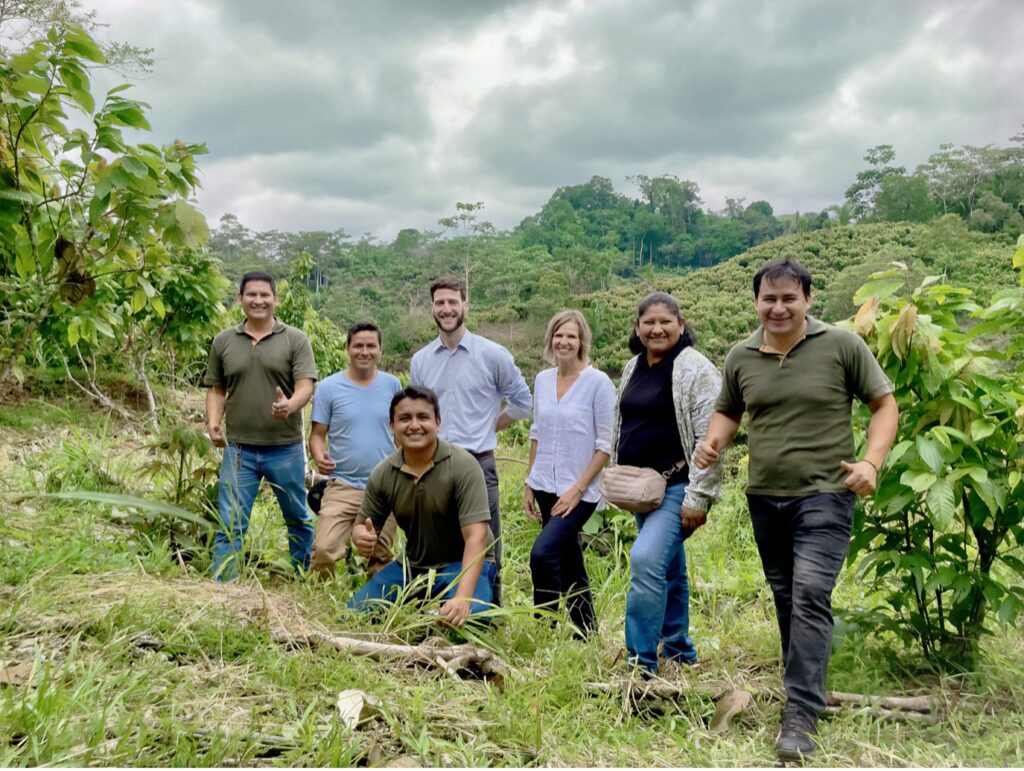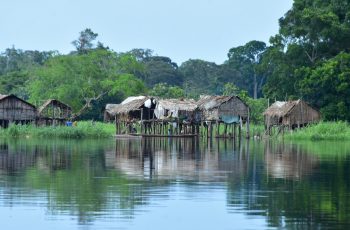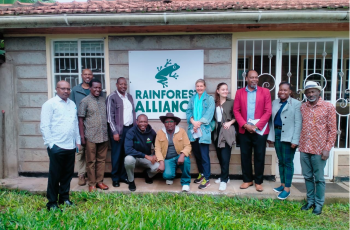The 2024 Annual Impact Report of the Food Securities Fund demonstrates continued progress towards its social and environmental objectives, as a result of 4 years of investment track record. By the end of 2024, the Fund had worked with 9 companies, benefiting farmers across 10 countries. The 2024 Annual Impact Report summarizes the Fund’s contributions to financing sustainable supply chains and agricultural landscapes in emerging and developing markets, on farmers, employees, and the environment – including contributions under the UN conventions on climate change, biodiversity and land degradation, in several Least Developed Countries (LDCs). It also outlines developments toward the Fund’s environmental and social impact targets, including Article 9 disclosures under the EU Sustainable Finance Disclosure Regulation (SFDR). Clarmondial serves as the Fund’s advisor.
Global context and first investments in Latin America
In 2024, the Fund supported borrowers in maintaining resilient supply chains amid commodity price volatility. For example, cocoa futures surged above USD 12’900 per metric ton, far above the historical average of USD 2’000 to 3’000. The impact of this price surge on smallholder farmers and the implications for supply chain finance supporting regenerative agriculture in cocoa was discussed in a Clarmondial blog post and in a webinar that Clarmondial hosted with the Swiss Platform for Sustainable Cocoa.
Coffee faced a similar trend in 2024, with Arabica more than 50% above 2023 prices, and Robusta above 70%. As a result, the demand for timely, cost-effective financing increased, and the Fund continued to enable borrowers to scale responsible practices within smallholder-based supply chains through impact-aligned financing. The importance of working through local aggregators was summarized in a Clarmondial blog post in December 2024.
During 2024, the Fund’s borrowers reported record revenues and expanded business partnerships, benefiting smallholder farmers and reinforcing the Fund’s role as a long-term financing partner.
In 2024, the Fund made its first investments in Latin America, in Peru and Honduras, expanding its geographic footprint beyond Sub Saharan Africa. To strengthen local engagement, Clarmondial appointed Natasha Barantseva as Partner for Latin America and the Caribbean (LAC) in January 2025.
Overview of 2024
With a focus on climate, biodiversity, and inclusive rural development, borrowers scaled their efforts in 2024 to enhance supply chain resilience and catalyze transformative change in the lives of smallholder farmers.
For example, to strengthen climate resilience, one borrower in Honduras supported coffee-producing households in diversifying income sources by introducing beekeeping and food crop cultivation, which also contributed to improved household nutrition.
Since 2021, borrowers have distributed over 498’000 food crop seedlings, including staples such as cassava, nutrient-rich indigenous fruits like African mango, and other valuable crops like avocado and moringa, across sourcing landscapes in Sub Saharan Africa and Latin America.
Borrowers also advanced land management practices supporting biodiversity conservation. A borrower in Peru held trainings for smallholder cocoa farmers in 2024 on biodiversity, organic certification, good harvest and post-harvest practices, circular household waste management, and soil health.
Clarmondial secured Technical Assistance (TA) support for a borrower in Burkina Faso to promote inclusive business models through a women’s leadership program, and to certify smallholder farmers in organic practices, reinforcing the case for biodiversity-friendly farming. This work is featured in a recent Clarmondial case study.
Several borrowers also provided training in household financial planning and “farming as a business,” with a focus on women and youth inclusion through rural savings and income diversification programs.
The Fund has contributed to social and environmental impact creation over the past 4 years, including:
- Rural livelihoods: borrowers worked with 95’181 smallholder farmers (16% women), and they have employed 2’679 staff, including 1’145 youth (43%) and 1’316 women (49%).
- Environmental Benefits: borrowers restored 150’962 hectares of land, distributed 1’685’447 seedlings and supported the management of 226’727 hectares of land under certified sustainable practices. Borrowers have contributed to the sequestration of an estimated 215’939 tCO2e.
A case study on the Fund’s role in financing nature-based solutions is featured in the Climate Policy Initiative Toolbox on Financing Nature-based Solutions.
Looking forward
In 2024, Clarmondial launched the first Technical Assistance (TA) project for the Fund in collaboration with SSNUP.* Clarmondial has developed the following TA projects, related to the Food Securities Fund: benefiting mango and cashew farmers in Burkina Faso. In 2025, it launched another 2 TA projects for the Fund under the SSNUP program:
- Burkina Faso: training on women’s economic empowerment, support to organic certification and good agricultural practices among smallholder farmers and farming cooperatives (completed).
- Honduras: training smallholder coffee farmers in regenerative agriculture, with a focus on soil health (active).
- Nigeria: Supporting smallholder sesame farmers in Northern Nigeria to adopt sustainable farming practices and access markets (active).
Clarmondial also advanced the development of the FSF Accountable Cocoa and Coffee Tranche (ACCT), aimed at scaling responsible sourcing across cocoa and coffee value chains and sourcing landscapes in selected countries. To date, Non-Objection Letters have been secured from Costa Rica, Côte d’Ivoire, Dominican Republic, Ghana, Guatemala, Nigeria, Rwanda, and Uganda.
Finally, look out for the Fund being featured at the UN Food Systems Summit +4 Stocktake (UNFSS+4) in Addis Ababa, Ethiopia.
Clarmondial would like to thank all stakeholders for their support and looks forward to continuing to advance the Food Securities Fund’s impact with current and new partners.

* SSNUP is a program funded by the Luxembourg Directorate for Development Cooperation and Humanitarian Affairs, the Swiss Agency for Development and Cooperation, and the Liechtensteinischer Entwicklungsdienst. ADA ensures the coordination as well as the knowledge management component of the SSNUP program.


